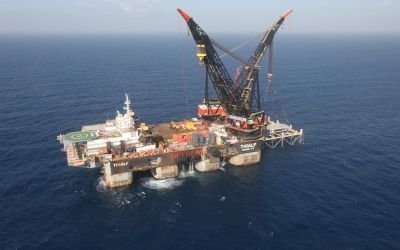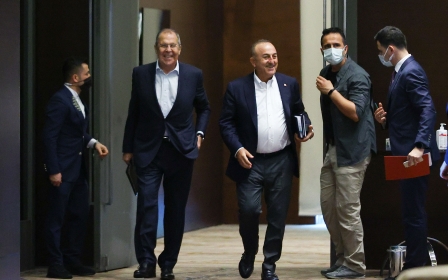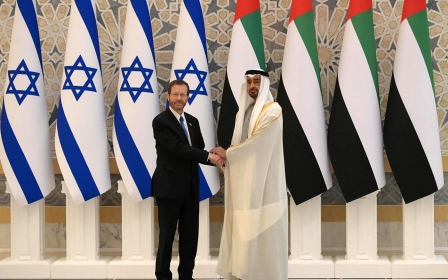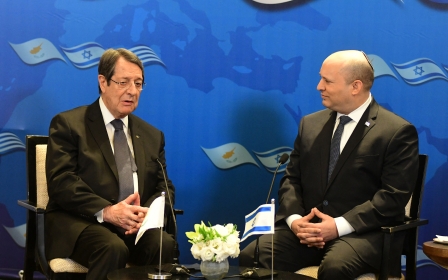Israel's president in Turkey for talks to 'restart' relations
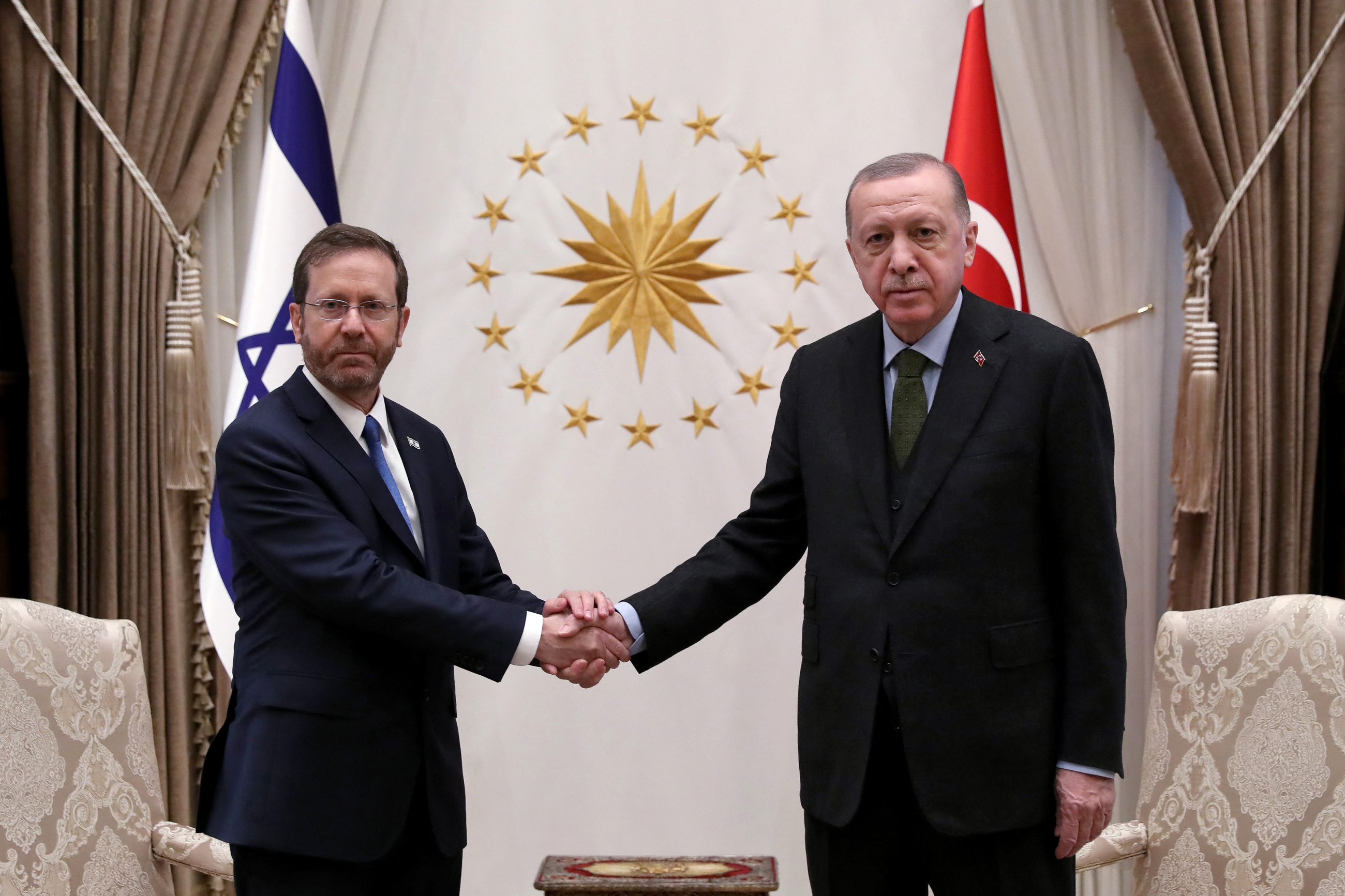
Israel's President Isaac Herzog met with Turkish President Recep Tayyip Erdogan in Ankara on Wednesday, in the first visit by an Israeli head of state to Turkey since 2008, as the two countries seek to mend fractured ties.
Herzog's visit, which was planned weeks before Russia invaded Ukraine, comes as both Israel and Turkey play mediation roles between Kyiv and Moscow. However, bilateral issues are expected to dominate the talks after more than a decade of a rupture due to Turkey's vocal support for the Palestinian cause and criticism of Israeli policies. The war in Ukraine is also expected to feature in the discussions.
“We will not agree on everything and the relationship between Israel and Turkey has certainly known ups and downs and not-so-simple moments in recent years,” the Israeli president said before leaving for the Turkish capital.
“But we shall try to restart our relations and build them in a measured and cautious manner."
After arriving in Ankara, Herzog and Erdogan proceeded through an honour guard at the Mustafa Kemal Ataturk mausoleum. Herzog wrote an inscription that praised Turkey’s first president as a “visionary leader” for choosing “the path of collaboration".
Relations between the two have been tense since 2018, when Israeli forces killed dozens of Palestinians taking part in the Great March of Return protests in Gaza, as the protesters demanded the implementation of refugees’ right of return and an end to the crippling 11-year siege on Gaza. Turkey recalled all of its diplomats and ordered Israel’s envoy out of the country.
But experts believe Turkey and Israel found value in their relationship and incentives to come closer during events first in Nagorno-Karabakh in 2020 and then in Afghanistan in 2021.
The Hamas movement, which controls Gaza and maintains strong relations with Ankara, condemned Wednesday's meeting, and reiterated its policy of rejecting “any form of communication with our enemy”.
Turkish Foreign Minister Mevlut Cavusoglu said he will visit Israel and Palestine on 3 April to discuss the reappointment of Turkish and Israeli ambassadors.
Israeli gas to Turkey
Ahead of his trip to Ankara, Herzog visited Greece and Cyprus to reassure the two Israeli allies with long-standing acrimony towards Erdogan's Turkey.
“At a time when the international order is being shaken, it is good and proper that stability and partnership be maintained in our region, and I emphasised this point during my visits to Greece and Cyprus in recent weeks," he said.
In 2010, Israel created an alliance with Greece and Cyprus, holding regular meetings and joint military drills. The trio is part of the East Mediterranean Gas Forum, which was established in 2019 with other states - including Egypt, Jordan, and Palestine, but excluding Turkey.
In 2020, Israel, Greece and Cyprus signed the EastMed deal for a pipeline to ship gas from the Eastern Mediterranean to Europe, triggering objections from Ankara.
Israeli officials had said that Herzog and Erdogan may discuss the prospect of exporting Israeli gas through Turkey to reach Europe - which Erodgan previously raised in January before the conflict between Russia and Ukraine began.
Turkish and Israeli officials both say the prospect of bringing Israeli gas to Turkey through a pipeline in the Eastern Mediterranean is a chief incentive to repair their relationship.
“The market logic to bring Israeli gas to Turkey for domestic use and export to Europe has existed for at least eight years and has not changed,” Michael Tanchum, a fellow at the Middle East Institute in Washington, told Middle East Eye.
“With events in Ukraine focusing a sense of urgency on natural gas, combined with Turkey's recent rapprochement efforts with Israel and other Middle Eastern actors, the previous political obstacles could be resolved."
Herzog, who will hold bilateral talks with Erdogan before a state dinner, will also meet members of the Jewish community in Istanbul on Thursday, before returning to Israel.
Middle East Eye delivers independent and unrivalled coverage and analysis of the Middle East, North Africa and beyond. To learn more about republishing this content and the associated fees, please fill out this form. More about MEE can be found here.


